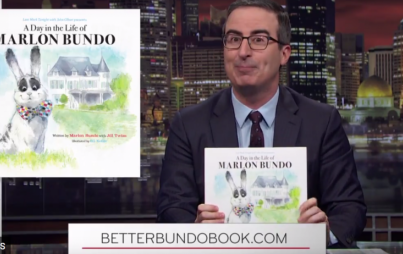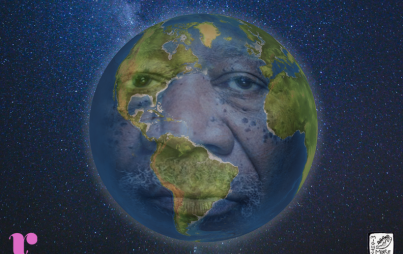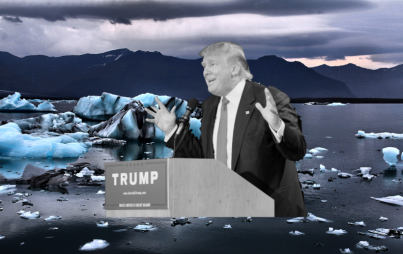
Anti-gay activists have added another weapon to their arsenal: the alarming phrase "natural marriage." As in: "Those gay people want to destroy natural marriage!"
Shrewd, guys. Very shrewd. This casts homosexual marriage as not just untraditional, but anathema to all that's natural and right and just in the world. (Oh no!) Never mind that it's utter BS: words are effective, and these words stick.
Of course, this isn't the first time carefully selected words have been used to push an agenda. Here are three ingrained phrases that have had particularly powerful affects on our political and legal systems:
"Climate change"
While "climate change" and "global warming" have both been used for years, it was GOP political strategist Frank Luntz who initially advocated for a switch to the less scary-sounding "climate change," which (surprise!) has since become the common way to frame this issue. In a memo to fellow Republicans, Luntz wrote:
“Climate change” is less frightening than “global warming”. As one focus group participant noted, climate change “sounds like you’re going from Pittsburgh to Fort Lauderdale.” While global warming has catastrophic connotations attached to it, climate change suggests a more controllable and less emotional challenge.
Interestingly, Luntz was also a proponent for "energy exploration" instead of "drilling for oil." A conniving fellow, that Luntz!
"Partial birth abortion"
First coined by GOP congressman Charles T. Canady in 1995, this term casts late-term abortion as something that happens after a baby has been born. While not accurate or recognized by the American Medical Association or American College of Obstetricians and Gynecologists, this phrase nonetheless made its way into the Partial Birth Abortion Ban Act, which—no doubt due in no small part to the language behind it—passed in 2003.
"Tax relief"
According to George Lakoff, a leading scholar on political linguistics, George W. Bush revealed this catchy euphemism for "tax cuts" the very day of his presidential inauguration. The brilliance of this wording is that it frames taxes as an unnecessary burden we all need to be relieved of, rather than something necessary for a functioning democracy. It quickly resonated with the public, who were all too happy to embrace Dubya's tax cuts—er, tax relief.
Clearly, words and framing are significant. They shape what we feel and think, not to mention how we vote and enact legislation. This is why "natural marriage" is more than crafty. It's pretty damn scary.
Image: Taro Taylor/Flickr






